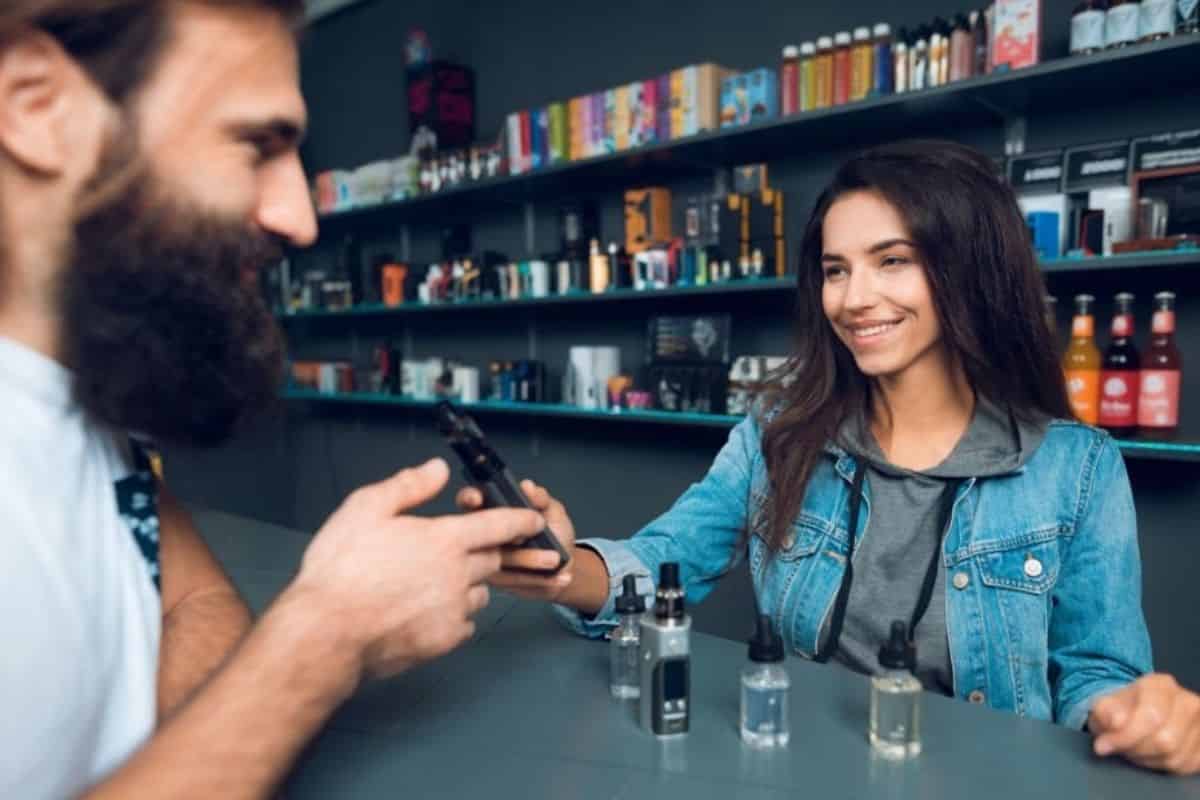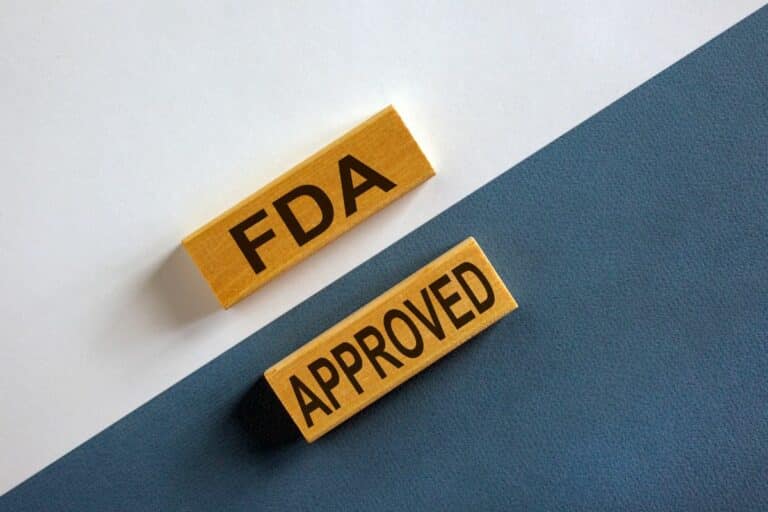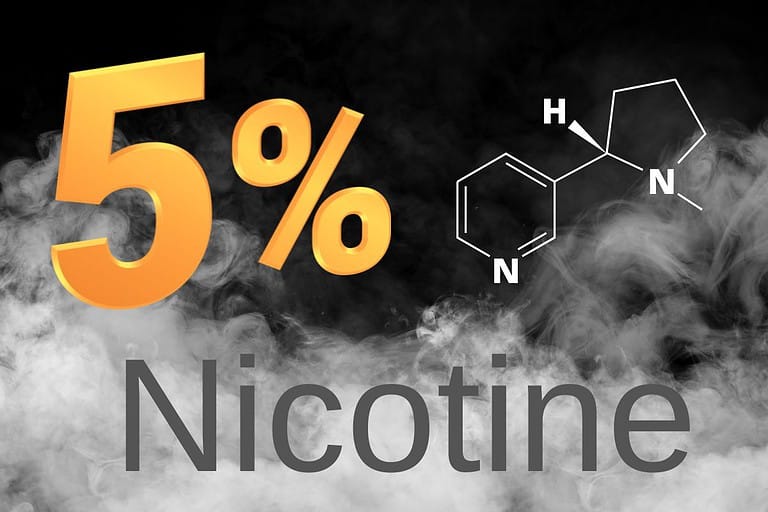Do You Need an ID to Buy a Vape? Essential Guidelines Explained
The topic of purchasing vapes and whether an ID is required is often a point of curiosity and concern for individuals interested in vaping. The age restrictions for buying electronic vaping devices vary depending on the laws instituted regionally or nationally, providing various answers to this question. However, some universal factors can provide clarity on the subject and set expectations for potential vape users exploring this option.
It is essential to understand that vaping devices, such as e-cigarettes, are typically subjected to age restrictions due to their association with nicotine consumption.
In most locations, a government-issued ID is generally required to purchase a vape, ensuring that the buyer meets the minimum legal age. Responsible retailers conduct thorough ID checks to keep these products out of the hands of underage individuals. However, it’s worth noting that some young people may still find ways to get nicotine out of their system by trying different methods, highlighting the importance of strict enforcement of access restrictions.
In conclusion, to purchase a vape, one usually needs to present a valid ID as proof of age to comply with legal age requirements. This measure aims to prevent underage individuals from accessing vaping devices and developing potentially harmful habits at an early age. As a result, the answer to whether an ID is required to buy a vape depends largely on local regulations, but it is important to adhere to these guidelines for a safer vaping experience.
Table of Contents
Legal Age to Buy Vapes
In order to purchase vaping products, one must meet the legal age requirement, which typically ranges between 18 to 21 years old. The minimum age for buying vapes varies depending on the country, state, or region, and local authorities have the power to enforce age restrictions.
One common method for ensuring that customers meet the minimum age requirement is by checking their identification upon purchase. Retailers who sell vaping products, such as the Torch 5000 Disposable Vapes and DazeD8 Pineapple Express Disposable Vape Pen, may request a valid ID to verify the age of the buyer. This practice helps to prevent underage individuals from accessing vaping products illegally.
Despite age restrictions and ID requirements, some young people may attempt to obtain vapes through alternative means, such as asking older friends or acquaintances to purchase the items for them. Others may resort to purchasing vaping products from retailers who do not strictly enforce age verification.
It is important for both buyers and retailers to be aware of the legal age restrictions in their area, as selling vaping products to underage individuals can lead to penalties, fines, or loss of business licenses. By adhering to the established age requirements, retailers can help contribute to a responsible vaping community.
NEW CUSTOMER DISCOUNT
Save 15%
15% OFF YOUR ENTIRE ORDER FOR NEW CUSTOMERS USE CODE WELCOME15!
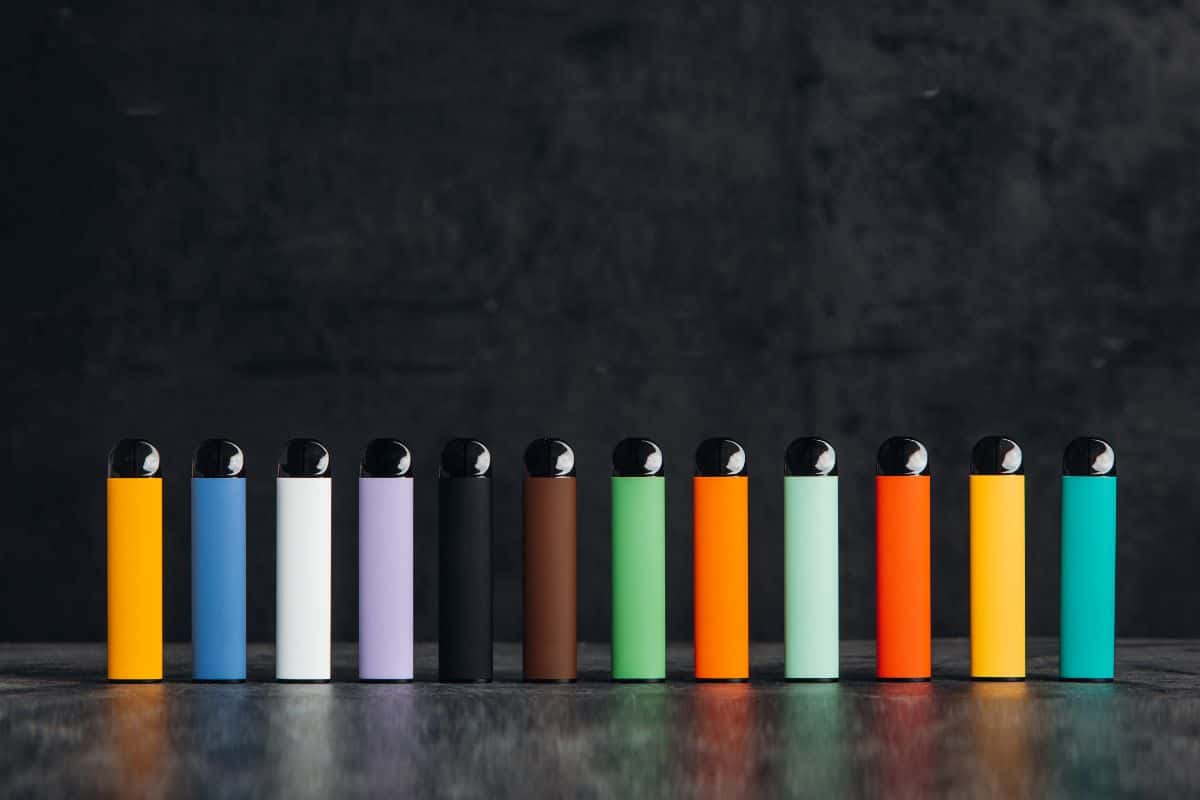

ID Verification for Vape Purchase
ID verification plays a crucial role in the purchase of vape products, especially as regulations aimed at preventing underage usage increase. When obtaining a vape, customers are usually asked to present a form of identification, such as a driver’s license or passport, to confirm they are of legal age.
In the United States, the legal age to purchase vape products is typically 21. Retailers are expected to check the ID of anyone appearing to be under 27 years old. A study found that vape shops, in particular, failed to check ID for underage decoys during attempted purchases. This highlights the need for stricter adherence to ID verification practices among vape retailers.
A valid driver’s license and passport are widely accepted forms of identification to purchase vape products. Other acceptable forms of ID may include state-issued identification cards or military IDs. At the point of sale, retailers will verify the customer’s date of birth and inspect the photo on the ID to ensure it matches the person making the purchase.
As the awareness around the potential health risks associated with vaping continues to grow, stricter age restrictions on vape products may be implemented. It is crucial for vape retailers to follow these laws and for customers to be prepared with proper ID when making a purchase. In addition to brick and mortar stores, online retailers often require digital verification of identification through a scanned image or data entry, which also helps deter underage access to vape products.
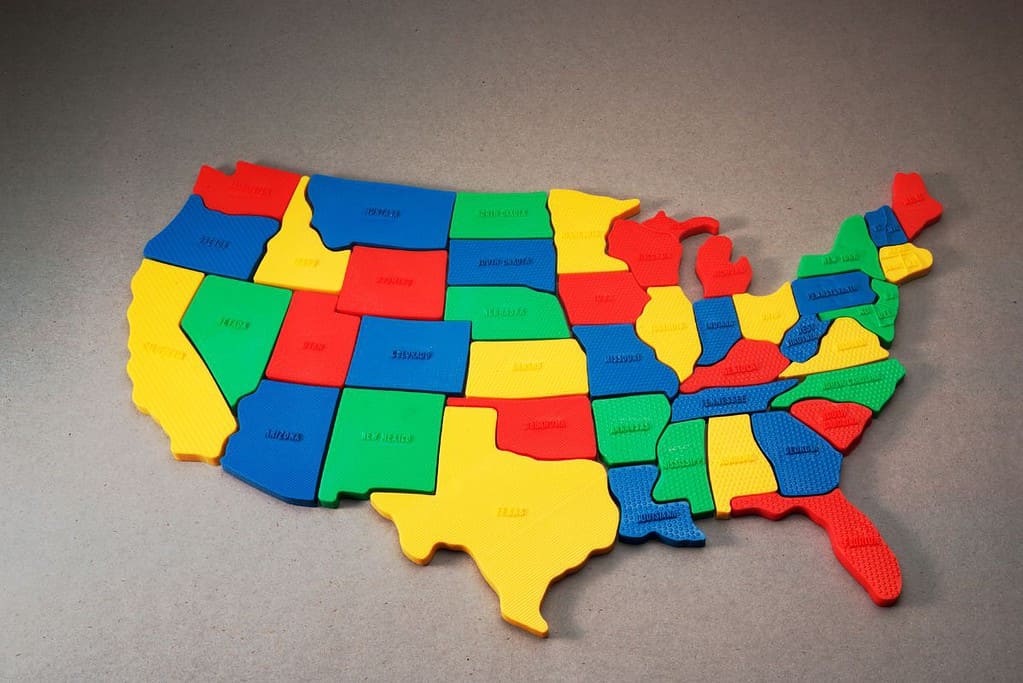
Vaping Laws in Different States
In the United States, vape and e-cigarette laws vary from state to state, with each implementing their own regulations and restrictions. Some states require proof of age at the time of purchase, while others enforce age verification with a valid photo ID^1^^4^.
State laws often address minimum purchase age, restrictions on sales, and penalties for selling to minors. For example, in some states, vape shops are not allowed to sell e-cigarette devices or liquids to persons under 21 years of age and must check photo IDs for age verification^5^.
Online sales of vaping products have also raised concerns regarding underage access. In some cases, youth may attempt to bypass age restrictions by using fake IDs^3^. States and federal authorities have been working to address these loopholes and enforce their laws more effectively.
The implementation and enforcement of state laws have generally aimed at restricting youth access to tobacco products, including vape and e-cigarette products^2^. By addressing factors such as minimum purchase age and photo ID checks, states hope to limit underage use and curb potential health risks.
It is important for both consumers and retailers to remain informed about the evolving landscape of vaping laws in their respective states and adhere to the regulations in place.

Vaping and Retailers
Retailers play a significant role in the sale and distribution of vaping products. There are various types of retailers that sell vapes, including online vape stores, gas stations, and platforms such as Amazon and eBay. Each retailer may have its policies and regulations when it comes to checking identification before completing a vape sale.
Online vape stores are popular due to their convenience and wide selection of products. When purchasing from an online retailer, customers may be asked to provide proof of age during the checkout process. Some online stores utilize age verification software or may request users to upload a copy of their government-issued ID. Occasionally, customers can find Vape Clutch Coupon Codes to save on their purchases.
Gas stations also sell vape products, often as a convenience to their customers. Like online retailers, gas stations may require customers to show valid identification upon purchase. It is essential for these stations to abide by local and federal laws regarding the sale of vaping products to underage customers, as failure to do so can result in fines and penalties.
Amazon and eBay, well-known online marketplaces, also carry a variety of vaping devices and accessories. Both platforms may have age restriction policies in place, which can vary depending on the specific listing or seller. Buyers should expect to provide proof of age when purchasing vape products on these platforms.
In conclusion, it is crucial for retailers to operate within the boundaries of the law and ensure they are selling vaping products only to customers of legal age. This means enforcing strict ID checks and providing adequate information to consumers about the legal age for vape purchases in their jurisdiction.
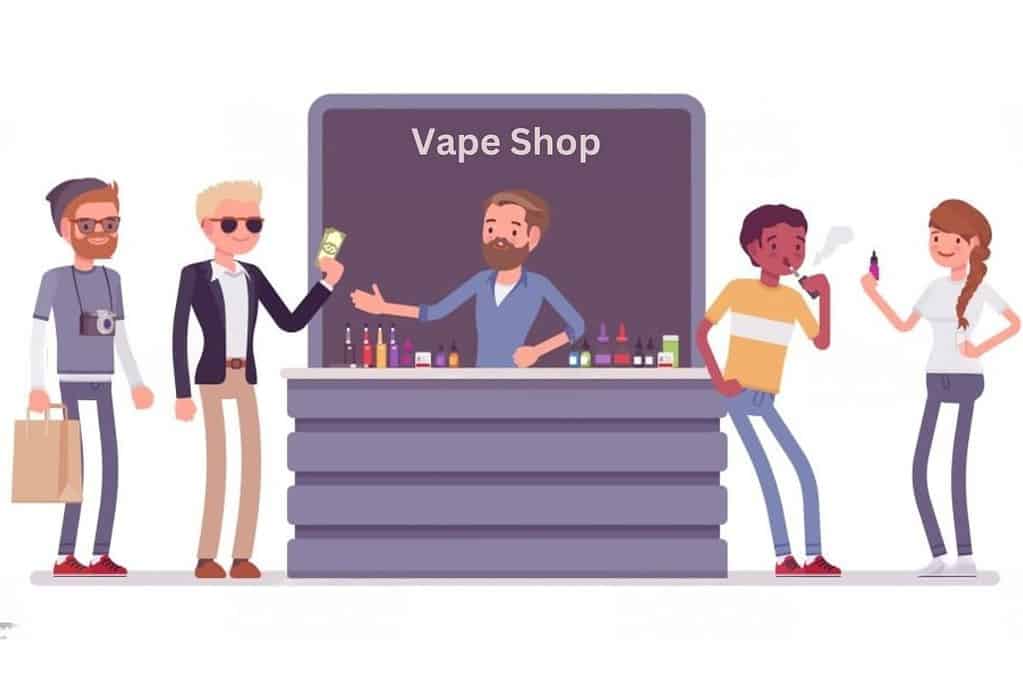
Underage Vaping and Penalties
Underage vaping is a growing concern, as an estimated 32% of adolescents have reported purchasing a vape. In efforts to curb this issue, strict regulations and sales laws have been implemented. However, there still exist loopholes that allow minors to access vaping products.
One common method that minors use to purchase vapes is through the use of fake IDs. In some cases, vape shops do not thoroughly check IDs, making it possible for underage individuals to walk in and buy a vape without proper verification. This lack of enforcement has had a significant impact on the accessibility of vaping products for minors and young adults alike.
Consequences for retailers violating age of sale policies for vaping products vary greatly. Penalties can include fines, suspension or revocation of licenses to sell tobacco products, and potential legal action depending on the jurisdiction. In order to minimize these instances and ensure compliance, authorities must hold offending retailers accountable.
Apart from physical stores, online sales have also contributed to the accessibility of vaping products for minors. To counteract this issue, more stringent measures need to be taken, such as implementing stricter age verification methods, including the use of government-issued IDs, birth dates, and social security numbers during the online checkout process.
In summary, underage vaping is a complicated issue that demands attention from authorities, retailers, and the public. By addressing these challenges through stricter regulation enforcement, increasing penalties, and bolstering age verification methods, the prevalence of underage vaping can be minimized.
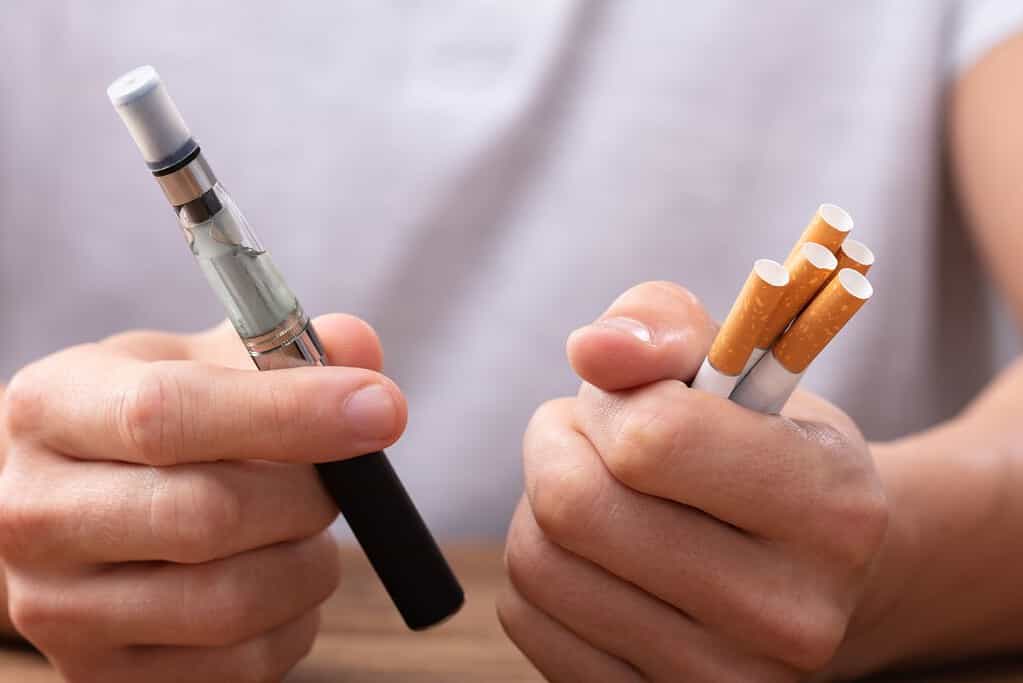
Role of Tobacco Products in Vaping
Tobacco products have played a significant role in the development and popularity of vaping devices, such as e-cigarettes and vape pens. These devices were initially designed to provide an alternative to traditional tobacco consumption, offering users a method for nicotine intake without the harmful effects of smoking. Nicotine products, such as e-liquids, are often used in vape pens, allowing users to control their nicotine intake more effectively than with traditional tobacco products.
E-cigarettes have gained popularity because they mimic the sensation of smoking without burning tobacco, thereby reducing many of the associated health risks. These devices use a heating element to vaporize an e-liquid containing nicotine and various flavorings, producing a vapor that can be inhaled by the user. Vape pens, on the other hand, are designed for more experienced users or those looking to customize their vaping experience. These devices often come with adjustable settings for power output and temperature, as well as interchangeable parts and accessories.
The vaping industry has expanded over the years to include a diverse range of products catering to different types of users. While some devices are specifically designed for use with nicotine e-liquids, there are also plenty of options available for those looking to avoid nicotine altogether. As vaping becomes increasingly popular, the development and availability of new and innovative products continue to grow. One example is the introduction of DazeD8 25mg Delta 8 Gummies, which cater to users seeking alternative ways to consume the cannabis compound Delta 8 THC.
Though vaping devices have gained a reputation for being a healthier alternative to traditional tobacco products, it should be noted that nicotine is still a highly addictive substance, regardless of the method of delivery. While vaping may reduce exposure to certain harmful substances found in cigarette smoke, it is important for users to be aware of the potential risks and to exercise caution when using nicotine-containing products.
In conclusion, the role of tobacco products in the vaping industry is significant, as they have influenced the emergence and advancement of devices that provide a less harmful method of consuming nicotine. As the market continues to evolve, it is crucial for users to be mindful of the potential risks associated with vaping, particularly when it comes to products containing nicotine.
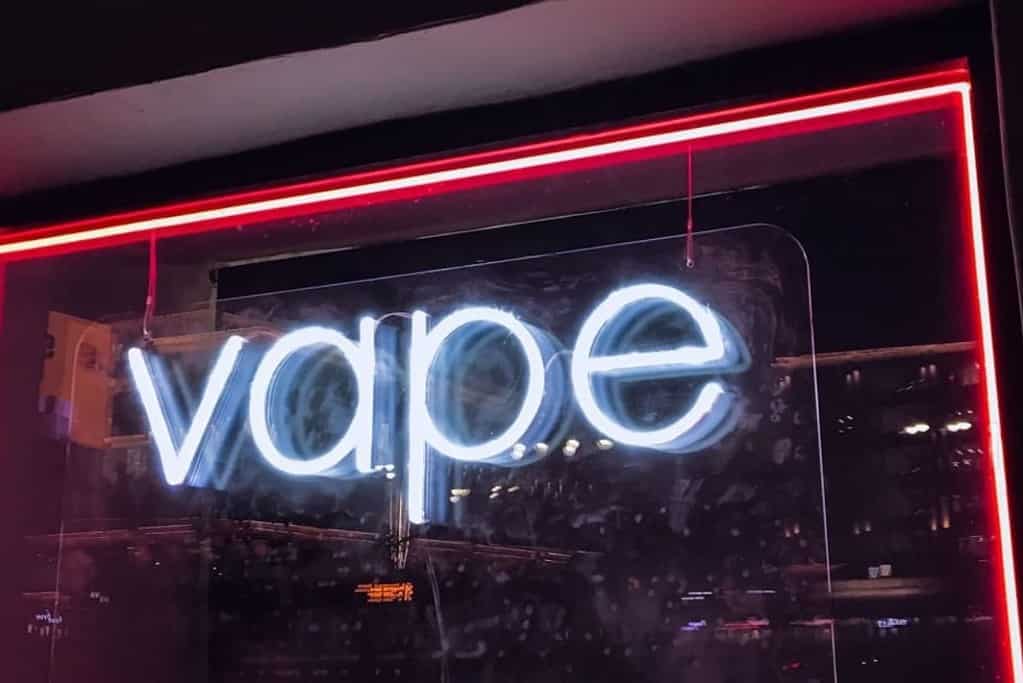
Online Purchase of Vape Products
Purchasing vape products online is a popular means for individuals to access these items conveniently. However, many online retailers require users to meet age restrictions by providing identification during the purchase process. Despite these restrictions, some users still manage to bypass age verification by using fake IDs or providing false age-related information when making purchases from online marketplaces.
Major e-commerce platforms, such as AliExpress and Alibaba, offer a variety of vape products like Mr Fog vapes, Brixz, Elf Bar BC5000 Disposable Vapes, and Candy King e-liquids. However, these platforms should be diligent in enforcing age restrictions to prevent underage users from accessing vaping devices and products.
To verify a customer’s age, online retailers typically ask for their credit card and billing address information. Credit card companies have their own age verification methods, which can serve as a barrier for underage consumers trying to purchase vaping products. However, it’s worth noting that this method is not foolproof, as determined individuals may still find ways to circumvent these measures.
In conclusion, while the requirement of an ID to purchase vape products online is a common practice, it is not always effective in preventing unauthorized access. Stakeholders in the vaping industry and e-commerce platforms must work together to develop improved age verification methods and robust policies to ensure that vaping products do not fall into the hands of underage users.

Role of Federal and State Laws in Vaping
In the United States, the regulation of vaping products is governed by both federal and state laws. At the federal level, the Food and Drug Administration (FDA) oversees the production, marketing, and distribution of e-cigarettes and vaping products, ensuring their compliance with the applicable tobacco laws. The FDA’s Deeming Rule classifies e-cigarettes as tobacco products, thus bringing them under the regulatory purview of the Family Smoking Prevention and Tobacco Control Act.
States play a significant role in regulating vaping as well, especially when it comes to restricting and monitoring the sales of these products to minors. For instance, California’s Tobacco 21 policy requires the legal age for purchasing tobacco and vaping products to be 21 years. Many states have implemented similar age restrictions and enforce penalties for those who violate these laws.
States also regulate the sale of vaping products through licensing requirements, taxation, and advertising restrictions. Some of these regulations specify that retailers must ask for a valid form of identification to verify the age of customers before processing the sale of vaping items. This way, they help prevent underage access to vaping products.
In addition to state-specific regulations, a few localities, such as the District of Columbia, have enacted additional laws to control and regulate the sale and use of e-cigarettes. These local regulations may include restrictions on the use of vaping products in certain public places or educational institutions.
Overall, both federal and state laws contribute to the regulation of vaping products in the United States. By requiring retailers to verify customers’ age and implementing stringent restrictions on sales, these laws aim to minimize the potential public health risks associated with vaping, especially among young adults and minors.
Vaping in the Military
The military is an environment that often enforces strict regulations and policies, and these extend to the use of tobacco and vaping products. However, vaping is prevalent among service members, as some military personnel use e-cigarettes as an alternative to traditional smoking.
For individuals in active military duty, obtaining and using vaping devices usually requires compliance with specific guidelines, such as purchasing off-base or providing proper identification. It is important to note that military e-cigarette users are more likely to buy off base, meaning going to civilian retail locations.
When purchasing vape products, service members are often required to present their US military ID card. This form of identification allows military personnel to benefit from various offers and promotions. Some vape stores cater to this demographic by offering military discounts to those who can provide verification through their military ID.
As a result of the strong presence of vaping within the military community, public health officials have expressed concern about its potential health implications, leading to military branches issuing warnings to educate their service members about the risks of vaping.
In conclusion, for military personnel to purchase vaping products, a valid US military ID card is typically required for authentication and to access associated promotions. It is important for those in active military duty to be aware of the guidelines and potential health risks surrounding vaping while serving their country.
Browse popular vape collections:
- Nicotine Disposables
- 2000 Puff Nicotine Disposable Vapes
- 2500 Puff Nicotine Disposable Vapes
- 5000 Puff Nicotine Disposable Vapes
- 6000 Puff Disposable Nicotine Vapes
- 7000 Puff Nicotine Disposable Vapes
- Disposable Vape Deals
- Best Vape Brands
- 8000 Puff Nicotine Disposable Vapes
- 9000 Puff Nicotine Disposable Vapes
- 5% Nicotine Disposable Vapes
- Rechargeable Nicotine Disposable Vapes
- Vape Coils
- Dab Wax Pens
- Dab Wax Pen Battery
- Yocan Vapes
- Vape Cases
Frequently Asked Questions
What identification is required to purchase a vape?
To purchase a vape, a valid government-issued ID is typically required. This is to verify the buyer’s age, as there are age restrictions in place for buying vaping devices. The specific requirements may vary by location and store policy.
Are there age restrictions for buying vapes?
Yes, there are age restrictions for buying vapes. In many countries and states, the legal age to purchase vaping devices and related products is 18, 19, or 21 years old, depending on the jurisdiction. It is important to know the laws in your area before attempting to buy a vape.
Can minors buy nicotine-free vapes?
Minors are generally not allowed to buy any type of vape, even if they are nicotine-free. The age restrictions for purchasing vaping devices apply regardless of the presence of nicotine in the product.
Is ID needed for purchasing vape batteries?
Purchasing vape batteries may also require proof of age with a valid ID, as they are considered part of the vaping device. This requirement can vary depending on the store and location, but it’s common practice to ask for ID when purchasing vape-related products.
Can you buy a vape online without age verification?
Most reputable online retailers require age verification before allowing customers to purchase vapes and related products. This may involve uploading a copy of your ID or going through a secure, third-party age verification system. However, some unregulated websites might not have these safeguards in place, making it easier for underage individuals to purchase vapes online.
Are there stores that sell vapes to 18-year-olds?
The availability of vape sales to 18-year-olds depends on the location and local laws. In some areas, the legal age to purchase vaping devices is 18, while in others, it may be 19 or 21. It’s important to research the regulations in your area, and consult reliable sources for up-to-date information.

